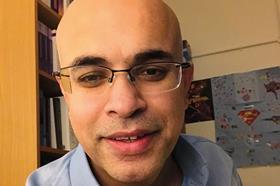Civil Procedure Rule 44.10 makes clear that, where an order is silent as to costs, no party is entitled to the costs in relation to that order. In Ashok Kapoor v Baltaj Johal [2024] EWHC 551 (KB), Julian Knowles J considered an appeal challenging an order which sought to vary earlier orders which did not deal with costs.
The Central London County Court had made two earlier orders in respect of various applications made by the appellant. At a subsequent hearing, the judge ordered that the appellant pay the respondent’s costs, including the costs of the previous applications.
The appellant challenged that order in the High Court on the grounds that: (i) contrary to CPR 44.10 and Griffiths v Commissioner of Police for the Metropolis [2003] EWCA Civ 313, the judge did not have the power to vary those orders because the earlier orders did not include any order for costs; and (ii) the judge erred in his consideration of PD52B paragraph 8.1(d) on awarding costs to the respondent in an appeal hearing.
Knowles J set aside the order. The judge noted that CPR 44.10(1) and the commentary in the White Book 2023 (volume 2, paragraph 9B-550) make clear that where an order is silent as to costs no party is entitled to the costs in relation to that order. The judge also noted the comments of Mantell LJ in Griffiths when his lordship said: ‘[7]. By part 44.13 of the CPR [now 44.10 – see above] the general rule is now that where nothing is said about an order, no party is entitled to costs in relation to that order. So it would seem to me that, as matters stood following the hearing on 10 December, there was in effect no order for costs as between the claimant and the defendant.’

Knowles J held that CPR 44.10(1)(a)(i) was clear in its meaning and effect, namely, where an order does not mention costs, then no party is entitled to costs. The previous orders did not mention the issue of costs, nor did the parties seek to vary those orders and therefore it followed that the general rule applied, and no party was entitled to costs. The judge explained that, although Griffiths was an old case and dealt with an earlier version of what is now CPR 44.10, it remains good law.
The judge rejected respondent’s submissions that it could benefit from the exceptions in CPR 44.10(1)(b) or (c) read with CPR 44.10(3) because:
l CPR 44.10(1)(b) refers to the general rule not affecting the entitlement ‘of a party to recover costs out of a fund held by that party as trustee or personal representative’ (emphasis added). The respondent did not hold the fund in question as a personal representative; the appellant did.
l CPR 44.10(2)(c) clearly refers to the costs of the application sought without notice by the applicant which leads to the order in question, and not to the costs of the whole case (that is, here, the costs of the appeal); the previous orders were not made without notice; even if these orders were made pursuant to applications without notice, CPR 44.10(2)(c) refers to the court needing to have made an ‘order or direction sought by a party on an application without notice’ before the deemed costs provision applies. Neither of these orders made any order or direction which the appellant had sought. Thus, there was no ‘deemed’ order for costs on which CPR 44.10(3) could have bitten. Finally, there was no application to vary either order by the respondent.

The respondent’s arguments under CPR PD52B also failed because this general provision cannot override the specific words of CPR 44.10. It refers to ‘an application’, but neither of the earlier orders were made pursuant to an application and there was no application to vary the earlier orders in question within seven days of them being made, as required by the rules.
In cases where multiple procedural orders are made, there is a risk that the issue of costs may be overlooked and not dealt with explicitly in those orders. This will mean, as CPR 44.10 and the decision in Baltaj Johal make clear, that any subsequent order cannot vary those orders on the issue of costs. The rule is, as Knowles J held, clear in its meaning and effect.
Masood Ahmed is an associate professor of law at the University of Leicester and a member of the Law Society’s Dispute Resolution Committee. Lal Akhter is director of Docket Live and an unregistered barrister































No comments yet